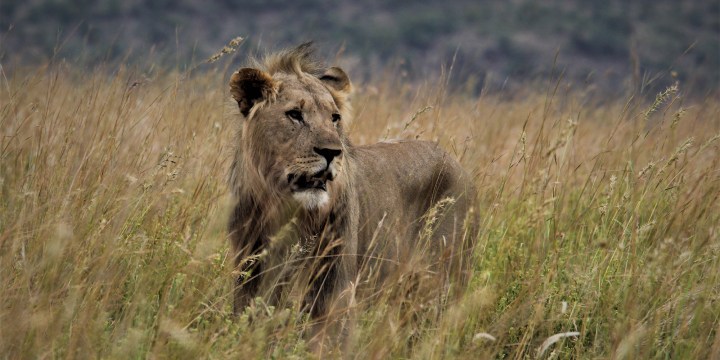SHOOT TO KILL
Trophy hunting quotas stopped by animal protection NGO – for now

The decision by the Department of Forestry, Fisheries and the Environment to issue quotas to trophy-hunt leopards, black rhinos and elephants has been suspended by court order.
The Western Cape High Court has blocked the issuing of quotas to hunt 10 leopards, 10 black rhinos and 150 elephants following an application by the Humane Society International/Africa, provisionally agreeing that they were invalid and unlawful.
Final judgment will be determined in a second part of the case, which is to follow. But for now, no quotas may be issued by Environment Minister Barbara Creecy.
The court concurred with HSI/Africa that Creecy’s department was not permitted to defer the 2021 quotas to 2022, as it had attempted to, because this was not authorised under regulations on international trade of these species and also violated the common law principle of legitimate expectation. It also found that:
- The Department of Forestry, Fisheries and the Environment failed to comply with the required public participation conditions;
- The quota announcement was not published in the Government Gazette; and
- The minister was not permitted to issue a quota for trophy hunting when there was no scientific proof that such hunts would not be detrimental to the species.
In his findings, Judge Patrick Gamble pointed out that if the interdict was granted, the lives of 170 wild animals would be spared pending the final hearing of the review. If the review was successful but the interdict was not granted, the protected animals would have been killed, their rights violated and their populations irreversibly affected.
If the review fails, he said, the quota will still stand. Then “the desire of the fortunate few who can afford to hunt protected animals exclusively for the purpose of transporting their trophies for display overseas will not have been lost, only delayed”.
The executive director for HSI/Africa, Tony Gerrans, welcomed the high court’s ruling. It enabled the terms by which the quota allocations were determined to be fully reviewed. “We are thankful that the high court recognises that the killing of our threatened, vulnerable and critically endangered wildlife cannot continue while this matter is heard.”
What the decision means is that, until the review is undertaken by the court, the department may not issue any quotas to hunt the three species, may not publish quotas in the Government Gazette and may not permit the export of their trophies.
It’s a considerable victory for conservation NGOs fighting for the welfare of animals in South Africa and an end to trophy hunting. They point out that leopards are categorised as vulnerable on the Red List of Threatened Species, black rhinos are critically endangered and elephant numbers across Africa have plummeted. Issuing licences to hunt them is bizarre.
South Africa is the world’s second-largest exporter of hunting trophies, accounting for 16% of the global total – an average of 4,204 a year. This is 50% more than Africa’s second-largest exporter, Namibia, and more than three times that of Africa’s third-largest exporter, Zimbabwe.
Between 2014 and 2018 South Africa exported 574 leopard trophies (98% of them wild-sourced), 1,337 elephant trophies (virtually all wild-sourced) and 21 black rhino trophies (all wild-sourced).
The top five species exported as trophies from South Africa are lions (mostly captive), chacma baboons, southern lechwes (captive, non-native), caracals and vervet monkeys. Most foreign hunters come from the US, and the rest from Russia, Denmark, Canada, Mexico, Germany, Hungary, Sweden and France.
According to the 2022 Good Governance Report dealing with trophy hunting, the South African government’s apparent commitment to trophy hunting “neither considers the opportunity costs associated with the practice nor its negative externalities”.
It adds that while trophy hunting may generate some economic benefit, this is hardly enough to substantiate the overall harm that it does, or to promote it as a conservation mechanism. DM/OBP
[hearken id=”daily-maverick/9366″]





















 Become an Insider
Become an Insider
This is good news but unfortunately leopards will continue to be shot as problem animals and permits issued , often retrospectively by the provincial conservation departments
Great. ‘Trophy hunting’ is merely pandering to the fragile ego’s of a bunch of immature and ignorant super-consumers. Time to stop it for good.
Man has always been a hunter and a natural part of the system. Once we acquired guns, then the balance was destroyed. Hunting has a role in conservation without question. Elephant in particular are far too numerous for the space we have available. The Kruger culling programme and canning facility should be recommenced, so the Park and surrounding communities stand to benefit. All part of a achieving sustainability albeit an unpleasant but necessary part of the system.